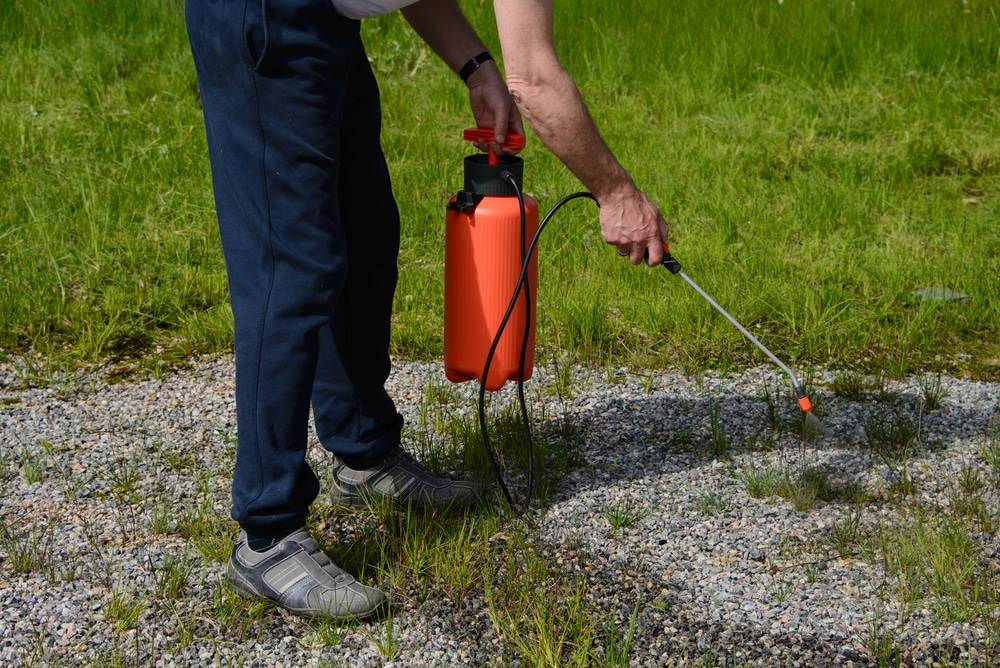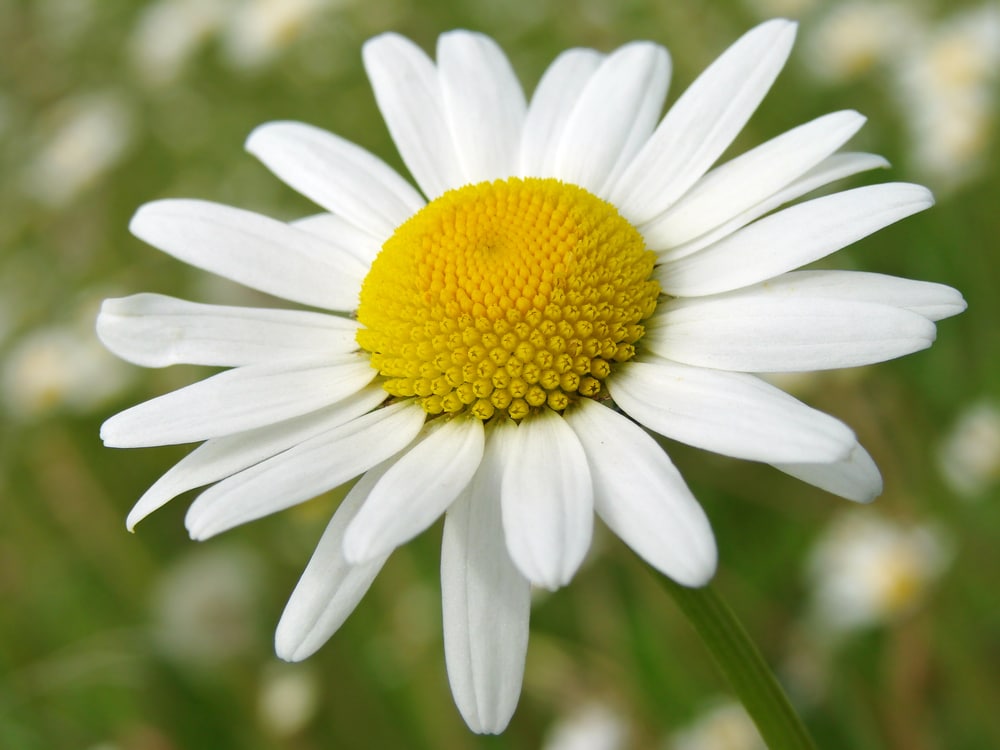Last Updated on
If you do any gardening, you are most likely familiar with weeds and how they pop up in unwanted places throughout your garden or lawn. Aside from ruining your landscaping, weeds steal nutrients and water in the soil, choke the roots of other plants, and block the sun from the plants and bushes you want to grow.
Fortunately, there are plenty of ways to kill weeds, including specific weed killer solutions. This article talks about making weed killers at home without purchasing chemical weed killers from the store. You can also find here some weed-killing tips and the benefits of using a DIY weed killer so you can eliminate weeds in your lawn quickly and effectively.
Getting Started
To get started, let’s take a look at the basics of weed killers first. This will help you understand them more and why they effectively eliminate weeds.
Types of Weed Killer: DIY Weed Killer vs Commercial Weed Killer
The two main types of weed killers are store-bought chemical weed killers and homemade natural weed killers. Both types of weed killers work to a certain degree, but some people are turned off by the harsh chemical presence found in store-bought weed killers.
For this reason, many people only turn to commercial herbicide weed killers as a last resort for use around their household, lawn, and garden.
What Are the Benefits of Using Homemade Weed Killer?
Using a DIY weed killer or natural weed killer poses several benefits when compared to their chemical counterpart.
- Unlike chemical weed killers, most homemade weed killers are non-toxic, making them safe for use around pets and kids.
- Due to their non-toxic nature, they are also safer for you to apply. As a result, you won’t need protective gloves or eyewear.
- Using a homemade weed killer is also safer for some wildlife like birds and bees.
- Most of the ingredients used to make DIY weed killers are cheap, and you may already have them in your household. This eliminates the need for a trip to the store as well.
- Some harsher weed killers with chemicals may also negatively impact, whereas natural weed killers will not.
Does Homemade Weed Killer Work?
So, is using a homemade weed killer worth it? Do they work? Actually, yes! All of the methods described below work on typical garden and lawn weeds quite effectively. However, most of the ways do not attack the roots, so they are not considered permanent.
Exceptions to this rule include the methods that involve salt. Salt can dehydrate the roots somewhat, resulting in more permanent damage to the plant. Of course, it will kill everything else around it, too, even your grass.
Homemade Weed Killers: 5 DIY Methods
There are several ways on how to make a weed killer easily. Let’s check them out below.
Method 1: Dish Soap, White Vinegar, and Salt
This first option is a highly effective way to kill weeds between sidewalk cracks and other areas pesky weeds may appear around your lawn. To achieve the best results possible, use this DIY weed killer spray on a hot sunny day.
- Add one tablespoon of liquid dishwashing soap and 1 gallon of white vinegar to a spray bottle.
- Make sure to use vinegar with at least a 5% acetic acid value. A higher proportion of acetic acid in vinegar is better suited to killing weeds. Using vinegar is quite effective on its own, but the addition of dish soap will help the mixture stick to the leaves and stems of the weeds you are trying to kill.
- Close the bottle and shake the liquid until thoroughly mixed.
- Spray the solution directly onto the areas you wish to exert weed control.
- If this mixture alone does not provide you with the results you were expecting, you may also want to add 1 cup of table salt or Epsom salt to the recipe.
However, keep in mind that a homemade weed killer that contains salt should only be used in areas where you don’t want anything else to grow. Salt can harm the soil and can quickly kill any other plants in the surrounding area.
Method 2: Borax
This homemade weed killer is great for use on lawns and ground ivy. It is highly effective if you want to get rid of weeds. However, it is also irritable to the eyes and skin so take precautions if you choose this option.
Also, make sure you don’t overuse it, or it will kill your plants and grass as well. This DIY weed killer can also be used to kill ants.
- For 1000 square feet of grass, add 1 cup of borax (powdered) to 2 gallons of water and mix the liquid thoroughly.
- Carefully pour your mixture into a spray bottle and spray the solution directly onto the leaves and stems of the weeds you want to kill.
- Make sure to keep pets and children away from the areas you spray in your grass and garden for several days after application.
Method 3: Alcohol
Alcohol is another homemade weed killer that you can easily spray or pour onto the ground in your garden. You should start to see your weeds die within a couple of days. Keep in mind that this option may also dry out the soil around your plants.
- Add 1 quart of water and three tablespoons of rubbing alcohol to a bottle.
- Mix the solution and spray it onto the leaves and stems of your weeds.
- While not relatively cheap, straight vodka or gin can also be sprayed directly on your weeds and have the same killing effect.
Method 4: Lemon Juice
This DIY weed killer option is best used on a sunny, hot day. The heat helps to activate the citric acid, which helps burn the life out of your weeds. While it should be less harmful to other plants, it will affect the soil’s acidity. So, try to avoid spraying the soil and surrounding plants during application.
- Squeeze fresh lemon juice or add real lemon juice from a bottle into a spray container.
- Apply directly to the leaves and stems of your weeds. Within a couple of days, they should start to die.
- If the lemon alone is not killing all of your weeds, you can also try adding white vinegar. Equal parts vinegar and lemon juice will bump up the effectiveness and also help to target different kinds of weeds.
Method 5: Boiling Water
Excessive heat can also be used to kill weeds. Surely, While it may seem farfetched, boiling water is often enough to control weeds in your garden and yard. Of course, it could also kill nearby plants or even scald your skin, so use this option with care.
- Boil water on your stove or in a tea kettle and pour it directly onto your weeds.
- To make it even more effective, add a tablespoon of table salt for areas where you don’t want anything else to grow, like sidewalk cracks or rocky garden features. Several applications can help kill the roots, but this is still considered a temporary or best semi-permanent option.
Weed Killer FAQs
Here are some of the frequently asked questions about weed killers.
What Is the Best Weed Killer?
The best weed killer depends on your specific type of weeds and the environment they are growing in. Some of the methods described here are better suited to different areas in your lawn or garden.
Try using the one best suited to your needs first. If you aren’t weed-free after a few days or a week, try another homemade method until you get the desired results.
What Kills Weeds Permanently?
When it comes to killing weeds permanently, it may seem a bit old-fashioned but pulling weeds by hand is one of the best methods available. This is particularly true if you don’t want to use professional weed killer chemicals.
Pulling the roots of weeds out by hand ensures you are not only providing a superficial effect. While this does remove the full weed plant, if it already had a chance to spread its seed, you may see more sprouts in the future.
Homemade Weed Killer Pro Tips
After reading through the list of different homemade weed killers, you should be well on your way to creating a weed-free area in your yard and garden. But before you jump right in, here are a few extra tips to help make the process as easy and effective as possible.
- Target weeds when they are young to get the best results. Ideally, this will prevent them from developing and spreading their seeds.
- Always apply weed killer on a warm and sunny day without wind or dew. Also, check the weather conditions and use it when there won’t be any rain for at least a day or two.
- Growing your lawn taller can help minimize weeds naturally.
- Always take the flowers off of weeds before they get a chance to germinate and spread their seeds.
- If you are left with excess weed killer, you can store it in a labelled bottle in a cool dark place.
- You can help deter weeds from growing in the first place by covering your gardens with mulch. A thin cover of mulch can block sunlight from potential weeds growing and prevent their seeds from implanting in the soil. Mulch can also protect your existing plants.
- Another great way to prevent weeds from growing involves sprinkling cornmeal in your garden. Corn gluten acts as a natural preemergent weed killer or herbicide. If you opt to go this route, make sure to apply the cornmeal before planting flowers or vegetables and wait a couple of weeks before doing so.
- Lastly, you may also want to try spreading out a thin layer of newspaper over your garden after you chop off the heads of your weeds. The newspaper provides cover for the soil and can smother weeds. It also blocks sunlight, deters weed growth, and even biodegrades naturally, so you won’t need to clean it up.
Homemade Weed Killer and You
When it comes to gardening, killing weeds is one of the best things you can do to keep your plants healthy and thriving. Now that you know the different ways on how to make weed killer solutions, which one of the homemade methods will you try first? Do you have other tips you’d like to share on how to control weed growth?
Let us know what you think in the comments below!
Emily is a woman of many talents. She has a B.A. in English and enjoys writing. Emily loves accessorising her home with quality products that not only serve a purpose but also enhance the overall convenience and tranquillity of her living space; there’s nothing like coming home to your own personal sanctuary after a long day! She loves anything that can make life easier or more comfortable—from dishware to furniture to lighting fixtures.



